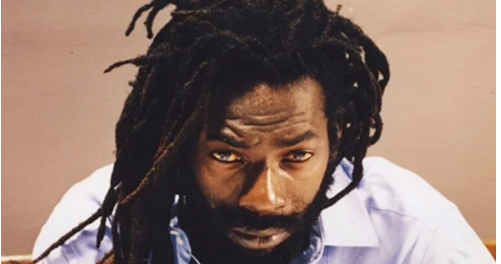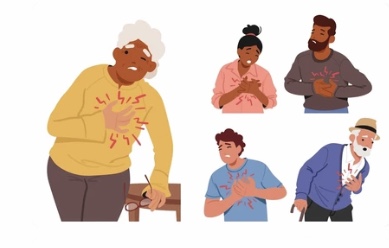Lifestyle
Buju Banton Unveils Igbo Ancestry, Raises Alarm Over Threat To Maroon Lands In Jamaica

Jamaican reggae icon Buju Banton recently made a profound revelation about his cultural heritage during an appearance on the popular “Drink Champs” podcast, co-hosted by N.O.R.E and DJ EFN. The celebrated musician disclosed that his tribe, the Maroons, has deep roots in the Igbo people of Nigeria, a lineage that forms a significant part of his identity.
Banton delved into the history of the Maroons, highlighting their legacy as fierce warriors who relentlessly fought against British colonization. Known as the “Black Maroons,” this group of Indigenous Jamaicans has a storied history of resistance and resilience. Banton emphasized that his bloodline traces back to Nigeria, affirming, “I am an Igbo man according to my bloodline.”
However, Banton’s reflection on his heritage was not without concern. He voiced a strong warning about the current Jamaican government’s actions, which he claims are endangering the Maroon people’s ancestral lands in the Cockpit Country, a region he described as sacred. The reggae legend lamented that the government is bringing in Chinese nationals and other foreigners, aiming to displace the Maroons from their Indigenous territory.
Read also : Ikeji Festival: Mirroring The Past, Present And The Future Of Igbo Cultural Heritage
“Our Indigenous way of life and our land are being threatened,” Banton stated, expressing his fear that these developments could lead to the erosion of the Maroons’ cultural and historical significance in Jamaica.
Buju Banton’s revelations on the podcast have sparked conversations about the preservation of Indigenous lands and the importance of cultural heritage, both in Jamaica and among the global African diaspora.
Lifestyle
Building Support Systems in the Diaspora

When you first leave home, especially a home that is as full of warmth, laughter, and noisy neighbours as Nigeria, you imagine that the biggest challenge abroad will be the weather, the food, or maybe the accent. What many people do not prepare for is the loneliness that could result from the change of environment.
In the diaspora, life can be quiet in a way that is both peaceful and painfully isolating. You begin to miss the little things: impromptu visits from friends, the aroma of suya at night, or the way your neighbour knocks to borrow pepper and ends up staying for gist. Abroad, everyone seems to be moving with a sense of purpose and urgency. They rush to work, rush back, heads bowed, eyes fixed on schedules and screens. If you are not careful, you too get swallowed into that rhythm.
In order not to get caught up in the speed of things, building a support system is necessary.
Support systems do not have to be large. They can start with one friend who understands your jokes without explanation. A WhatsApp group of Nigerians in your city. A local African church where you hear songs that remind you of childhood. It might even be a co-worker who invites you to her child’s birthday party, making you feel like you belong, even if it is just a little.
It takes effort. Sometimes, you might have to initiate conversations, show up for others before they show up for you, or attend gatherings even when you feel shy or tired. However, slowly, you begin to feel the connection and one day, you find yourself cooking jollof rice for someone else’s bad day, or calling a friend because they’re the only one who gets how much you miss home.
The diaspora can feel like an in-between place, neither here nor there, but support systems give it weight. They give it meaning. In the laughter shared with friends and co-workers, or in the shared silence of knowing glances during hard days, home is rebuilt somewhere.
In the end, you get to realize that home is not always a place. Sometimes, it is just the people who give us peace and warmth.
Lifestyle
How to Promote your Brand as a Small-Scale Business Owner
Health
Early Signs of Stroke You Should Watch Out For

In today’s fast-paced world, especially for Africans in the diaspora balancing work, family, and the pressures of daily life, health can sometimes take a back seat.
We can get carried away by Yet, few health conditions demand as much urgency and awareness as a stroke.
Often sudden and life-threatening, a stroke can have long-term consequences but early recognition of its warning signs can make all the difference.
A stroke occurs when the blood supply to a part of the brain is cut off, either due to a blockage or a burst blood vessel.
When this happens, brain cells begin to die within minutes. According to health experts, acting fast is crucial, as immediate medical attention can greatly reduce the risk of death or a permanent disability.
One of the most important things anyone can do is to learn the early signs of a stroke.
These typically include sudden numbness or weakness in the face, arm, or leg, especially on one side of the body.
Difficulty speaking or understanding speech, blurred or lost vision in one or both eyes, dizziness, and a sudden severe headache with no clear cause are also red flags.
To help people remember these symptoms, doctors recommend remembering face drooping, arm weakness, speech difficulty and time to call for emergency services, in order to save a loved one.
For members of the African and Black diaspora, the stakes are particularly high. Research has shown that people of African descent have a higher risk of hypertension which is a major cause of stroke, as well as other underlying conditions like diabetes.
Lifestyle changes in new environments, such as increased stress, poor diet, or sedentary habits can make this risk become even greater.
Preventing stroke begins with awareness and action. Activities like regular health check-ups, managing blood pressure and cholesterol levels, staying physically active, eating a balanced diet, and reducing alcohol and tobacco use are crucial steps to take in preventing this illness.
Equally important is knowing when something is not right and seeking help immediately.
In our communities, where stories of sudden illness are very common, education about stroke needs to become part of everyday conversations.
It is not just a medical issue, it is a lifestyle concern, a family issue, and a community responsibility.
-

 News6 days ago
News6 days agoNigeria’s Consul General in New York Receives Diaspora Watch Publisher, Boniface Ihiasota
-

 News1 week ago
News1 week agoPutin Condemns U.S. Strikes on Iran, Warns of Escalating Global Danger
-
Features6 days ago
Guyana, CDF Sign US$18m Agreement for Agricultural Development
-

 Business6 days ago
Business6 days agoEU, Liberia Sign €25m Agreement to Boost Private Sector Development
-

 News1 week ago
News1 week agoIsrael Bombs Iran’s Evin Prison as U.S. Joins Conflict: Tensions Soar in Middle East
-

 Milestone6 days ago
Milestone6 days agoAisha Braveboy Sworn in as Prince George’s County Executive, Appoints New Police Chief












